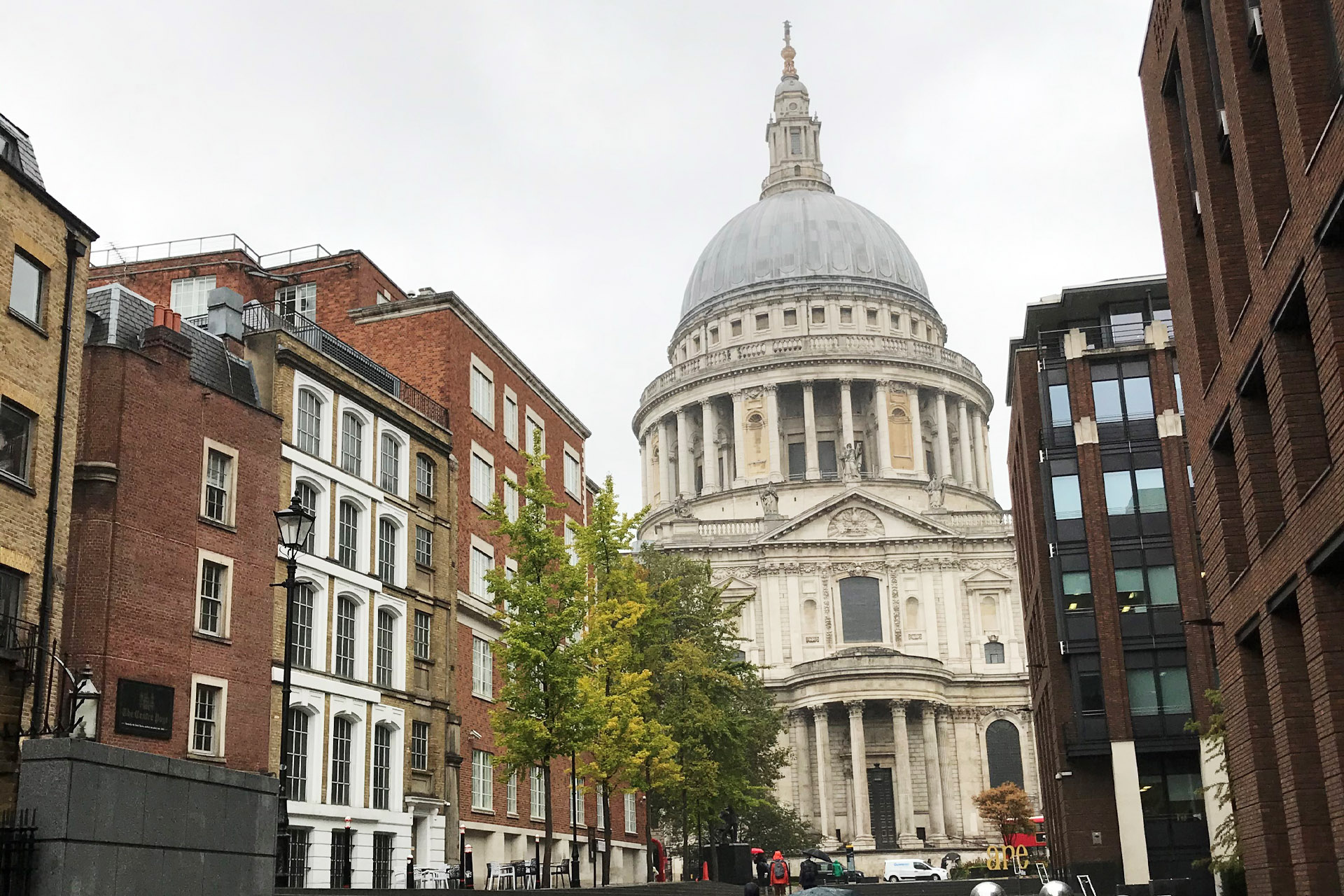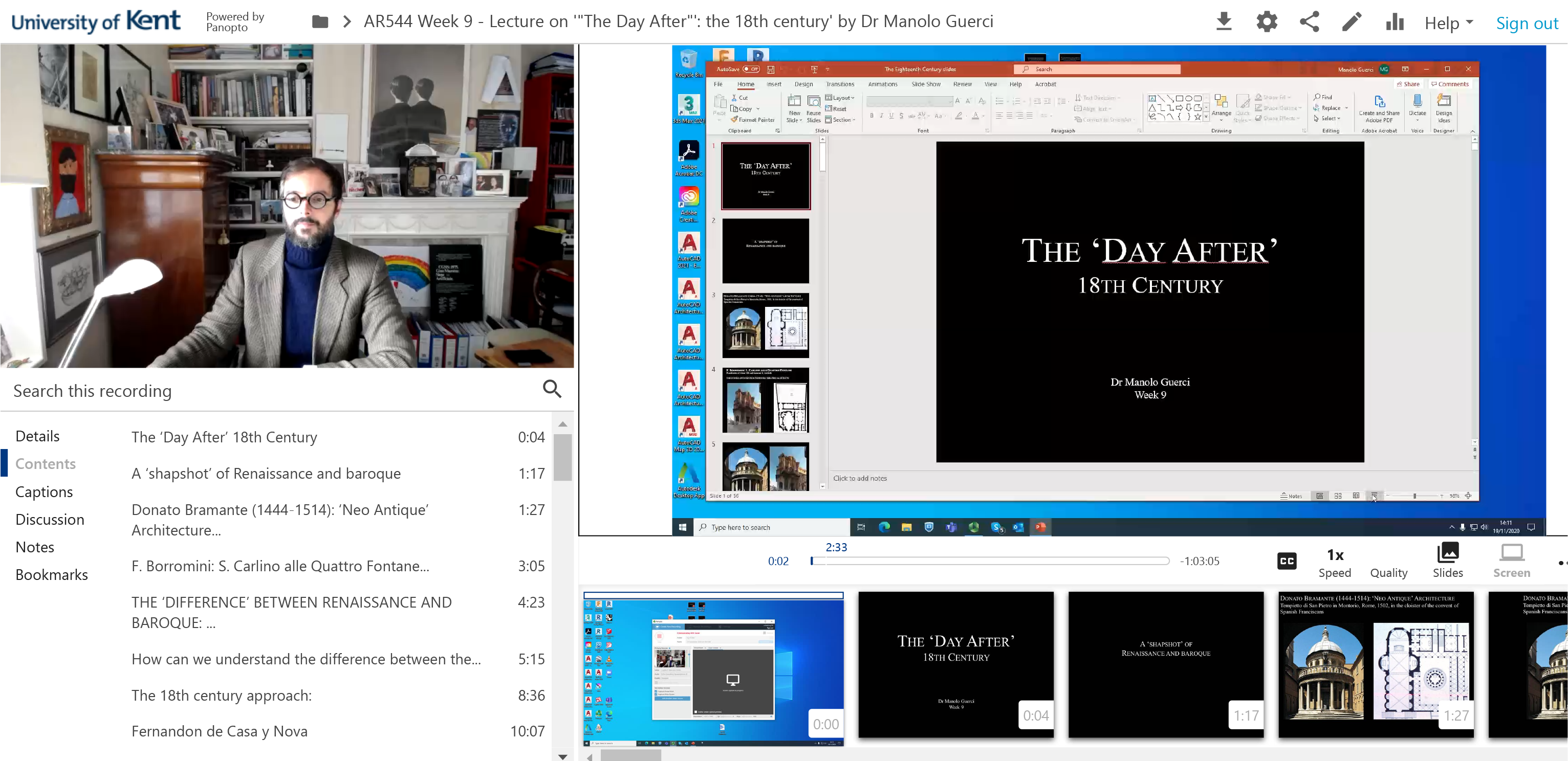Module Convenor, Dr Manolo Guerci, together with seminar tutors, Benedetta Castagna and Anske Bax (PhD candidates and teaching assistants), would like to share the continued success, in spite of an on-going pandemic, of this year’s BA (Hons) Architecture Stage 2 module, Renaissance to Neoclassicism.
Dr Manolo Guerci writes, “By innovating the way we teach, proactive measures were put in place to make the limitations imposed by Covid-19 a successful teaching tool. This has been a constant and enriching process of learning from adversity at the Kent School of Architecture and Planning, which Dr Guerci previously highlighted in 2020.
Adapting to an online history module goes beyond the proficiency of Microsoft Teams. In addition to the online weekly lectures, designed to engage and challenge students thinking over the concept of history and its use as a ‘tool’ for design, and uploaded in advance of each event so as to allow anyone, in any time zone, to comfortably listen to and use them as preparation for live seminars, the module introduced ‘new ways of interacting with students given the virtual mode of learning, based on exercises that could be completed digitally during seminars, with immediate feedback. Further provisions were made for online materials required for assignments, from core reading books to listing buildings available with virtual tours for those unable to visit in person.
Both seminar tutors Anske and Benedetta have felt the gravitas of their role more than ever in this year’s adapted role. Benedetta highlights, “As a seminar tutor in an online capacity, you become the live face and contact of the module and need to establish positive and effective relationships with the students despite distance”. Anske’s experience of this year’s cohort has also been wholly positive: “I can say with experience as a second year GTA and having had the pleasure of seminar teaching AR544 last year, that this year’s response and engagement has been nothing short of extraordinary. The students have attended regularly, participated well within discussions and demonstrated a clear understanding of their final assignment through their interim submissions. Their adaptive response to online teaching has been positive.”
Anske believes that ‘the continued success behind Renaissance to Neoclassicism for this year is down to the adaptive and creative online delivery’. In close consultation with myself, Anske and Benedetta have developed and implemented a range of weekly online activities and quizzes pre-loaded on Moodle/Teams. Each week’s task has been designed to enhance seminar interaction as well as a way to measure understanding of the lectures. This saw an active engagement and a clear way to assess progress.
One to one sessions to provide interim feedback were provided, alongside a series of ‘clinics’ whereby students could discuss progress.
In addition, this year we ran a sketching prize, the Gravett Award, a prestigious award in collaboration with the Kent Historic Building Committee. This allows the sketching component of the module’s final assignment to be recognised by the prize awarding committee.
Our students have expressed their delight through their online seminars in embarking upon a history module. They specifically appreciated learning about the development in architectural language and context to the historic landmarks in London, which they investigate for their assignments. Every week, Anske and Benedetta have enjoyed hearing academic discussions, and how helpful the pre-loaded lectures were in providing a critical understanding the lesson of the past, and the way it can be used not just for the module’s assignment but as a fundamental tool for design. This then naturally fed into enriching seminar discussions.
We are now looking forward to reading the final submissions.”


